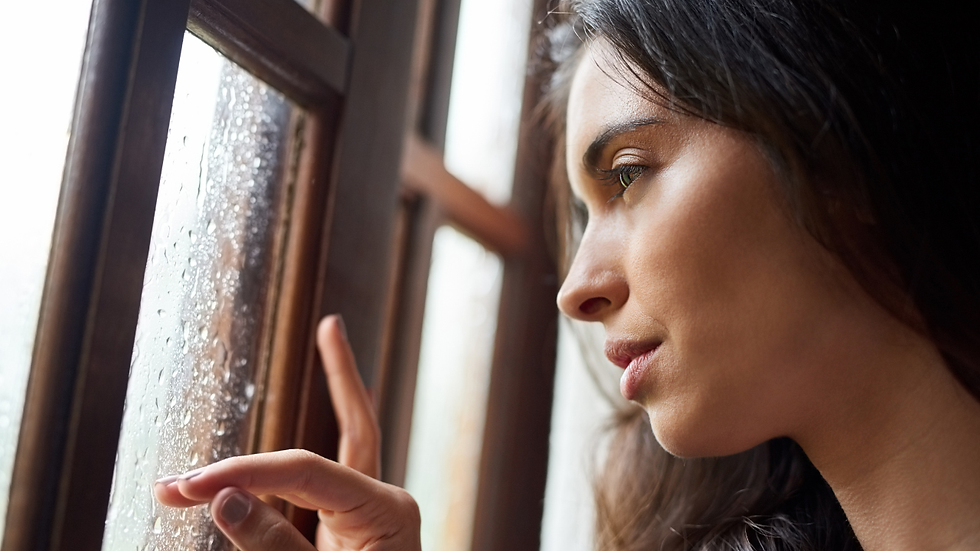Sleep and ADHD: Why Rest Is a Tool, Not a Luxury
- Agave Health Team

- Jun 4, 2025
- 3 min read
When you live with ADHD, it’s easy to treat sleep like an optional bonus—something you’ll get to after everything else gets done. But here’s the truth:
Sleep isn’t a luxury. It’s one of the most powerful tools in your ADHD toolbox.
And if you’re constantly feeling foggy, forgetful, or emotionally fried… your sleep might be the missing piece.
Let’s break down why ADHD makes sleep so tricky, why it matters so much more than most people realize, and how to build a sleep routine that actually supports your brain.

The ADHD-Sleep Struggle Is Real
According to the CDC, 1 in 3 adults isn’t getting enough sleep. For adults with ADHD, it’s even worse: 2 in 3 are sleep-deprived.
It’s not just because of sleep disorders (though those are common). It’s also because many ADHD adults:
Stay up late chasing productivity
Struggle with time blindness and routine
Use screens or work to avoid discomfort
Don’t realize how badly it’s affecting them
When clients come to us running on empty, their stories sound strikingly familiar—trouble focusing, short tempers, constant overwhelm.
Many assume they’re just not trying hard enough or that their motivation is broken.
But more often than not?
It’s not a motivation issue—it’s a sleep issue.
Why Sleep Matters More for ADHD Brains
Sleep is where your brain does its behind-the-scenes maintenance. Without it, all the things ADHD makes harder—attention, memory, and emotional regulation—become even more difficult.
Research shows:
Just 4–6 hours of sleep per night can cause:
Depressed mood
Sluggish working memory
More attention lapses
Poorer decision-making
Slower reaction time
Sleep deprivation hits ADHD brains harder, especially when it comes to focus and emotional regulation
Think of sleep like your brain’s reset button. Without it, even your best tools don’t work the way they’re supposed to.
How to Set Yourself Up for Better Sleep
Improving sleep hygiene can make a huge difference in ADHD symptoms. You don’t need a perfect routine—just a consistent one that works for you.
Here are a few places to start:
What helps:
Keep your bedroom cool and dark to cue your body that it’s time for sleep
Stick to a regular sleep/wake schedule, even on weekends
Avoid screens in bed—try wind-down activities like reading, puzzles, or knitting
Cut caffeine after mid-afternoon
If you can’t fall asleep in 20 minutes, get up and do something calm (then try again)
What doesn’t help:
Scrolling on your phone until 2 a.m. (we’ve all been there)
Forcing yourself to “just lie there” when sleep isn’t coming
Using exhaustion as proof that you’re working hard enough
If Sleep Still Feels Out of Reach—You’re Not Alone
Sleep can be especially tough for ADHDers. You might need more than just good habits—you might need outside support.
Here’s who you can reach out to:
A primary care doctor (to rule out medical causes)
A sleep specialist (for assessment and treatment)
An ADHD coach or therapist (for accountability and strategies that fit your brain)
👉 And yes, your Agave coach can help you build a sustainable sleep routine that fits your real life.
Final Thoughts
If you’re exhausted, overwhelmed, and feel like nothing is working, start with sleep.
It’s not lazy.
It’s not indulgent.
It’s foundational.
The ADHD brain works better when it’s rested. And you deserve to feel rested, too.
Trusted, Science-Backed Resources
Want to explore more about ADHD and sleep? These reputable resources are a great place to start:
CDC: Sleep and Chronic Disease
Overview of how sleep impacts health and functioning.
CHADD: Prioritize Your Sleep for Good Health
Tips specifically for ADHD adults on improving sleep hygiene.
PubMed: ADHD and Sleep Disorders
Clinical research on the link between ADHD and sleep challenges.
NIH: Sleep Loss and Executive Function
Research on how lack of sleep impairs attention and memory.



Comments